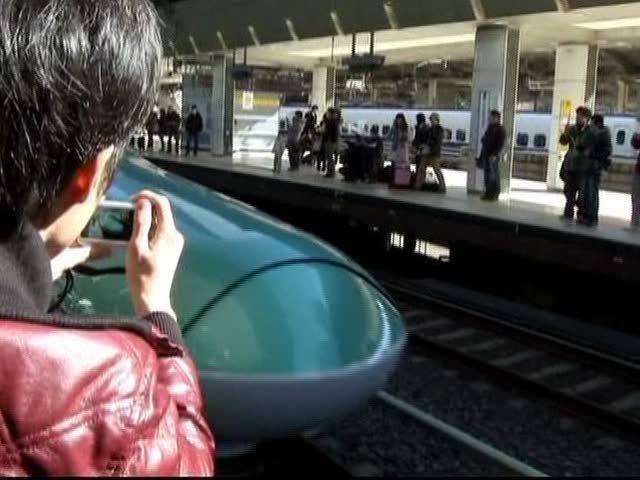Fitch Ratings has revised the Outlook on Estonia's Long-term foreign currency rating to Positive from Stable
Published:
25 October 2003 y., Saturday
Fitch Ratings has revised the Outlook on Estonia's Long-term foreign currency rating to Positive from Stable, the agency said in a press release.
At the same time, Fitch affirmed the Long-term foreign and local currency ratings of Estonia at A- and A+, respectively. The Short-term foreign currency rating was also affirmed at F1. The Outlook on the local currency rating remains Stable.
Estonia's ratings are supported by continuing structural reforms as the country prepares to become a full member of the European Union in May 2004. It is standardizing business practices and legislation at Western European levels, and encouraging foreign investment, the latter of which has contributed to a continuing improvement in the profitability of the corporate and banking sectors. This reform drive has been underpinned by favorable tax rates - particularly on reinvested earnings - and Fitch expects the economy to record strong growth in the region of 5%-7% a year, continuing to raise real per capita incomes, which on a purchasing power basis are already double the level of a decade ago.
Estonia's public finances constitute a considerable support to the ratings. The 2002 budget outcome was much stronger than expected as enhanced tax collection and strong economic activity boosted revenues and the general government sector ran a surplus for the second consecutive year. The country's history of fiscal prudence encourages optimism that the budget will remain broadly in balance, and that the government's tax cutting plans will be countered by strong underlying revenue growth and a cautionary expenditure policy. At 5.3% of GDP, general government debt is already the lowest of any sovereign currently rated in the 'A' range by Fitch and is forecast to fall further. The low borrowing requirement should also continue to support the public sector's strong net external creditor status, which stood at 19% of current external receipts (CXR) by the end of 2002.
Estonia's economic success is reflected by a high level of gross domestic investment, which reached 32% of GDP in 2002. This high investment rate and strong consumer demand have fuelled import growth, causing the current account deficit to more than double last year, while net FDI inflows and reinvested earnings failed to finance the gap for the first time since 1999. Gross external debt increased by nine percentage points of external receipts last year to reach 67% of CXR by end-2002. External bank borrowing undertaken in an effort to compensate for a failure of deposit growth to match that of loans also contributed to an increase in Estonia's net external debt position. Trends over the first half of 2003 indicate that the current account deficit will widen further this year, before starting to narrow from 2004 onwards on the basis of an expected pick-up in external demand. While the government may need to be ready to tighten fiscal policy in the absence of a narrowing of the current account deficit from next year given the limited monetary policy tools at the disposal of the Bank of Estonia, Fitch largely sees recent trends in the current account as a reflection of the present stage of Estonia's successful economic development. External debt ratios remain in line with sovereigns rated in the 'A' range.
Šaltinis:
Interfax
Copying, publishing, announcing any information from the News.lt portal without written permission of News.lt editorial office is prohibited.
The most popular articles
 Most EU countries continue to meet deadlines for incorporating single market rules into national law, contributing to economic growth and job creation.
more »
Most EU countries continue to meet deadlines for incorporating single market rules into national law, contributing to economic growth and job creation.
more »
 Japanese officials unveil their new bullet train, capable of travelling at speeds of 320 km per hour (198 miles per hour).
more »
Japanese officials unveil their new bullet train, capable of travelling at speeds of 320 km per hour (198 miles per hour).
more »
 The first International Security Technology Exhibition, KIPS 2011, will be held on 23-26 February 2011 in Kiev (Ukraine). The motto of the exhibition is ‘There can never be too much security!’
more »
The first International Security Technology Exhibition, KIPS 2011, will be held on 23-26 February 2011 in Kiev (Ukraine). The motto of the exhibition is ‘There can never be too much security!’
more »
 The world's highest restaurant opens in Dubai, United Arab Emirates, located 400 metres above ground in Burj Khalifa, the world's tallest tower.
more »
The world's highest restaurant opens in Dubai, United Arab Emirates, located 400 metres above ground in Burj Khalifa, the world's tallest tower.
more »
 The rights of consumers will be clarified and updated, whether they shop at a local store or buy goods on line, under new EU rules as amended by the Internal Market Committee on Tuesday.
more »
The rights of consumers will be clarified and updated, whether they shop at a local store or buy goods on line, under new EU rules as amended by the Internal Market Committee on Tuesday.
more »
 MEPs on Wednesday gave their green light for the Council to conclude an Interim Economic Partnership Agreement with Papua New Guinea and Fiji, two countries of the Pacific Region with significant exports to the EU.
more »
MEPs on Wednesday gave their green light for the Council to conclude an Interim Economic Partnership Agreement with Papua New Guinea and Fiji, two countries of the Pacific Region with significant exports to the EU.
more »
 Report sets 10 priorities for tackling the bloc's main economic challenges, launching the first ever ‘European semester'.
more »
Report sets 10 priorities for tackling the bloc's main economic challenges, launching the first ever ‘European semester'.
more »
 China's first capsule hotel ready to open its doors in Shanghai, aims to capture slice of booming leisure budget travel market.
more »
China's first capsule hotel ready to open its doors in Shanghai, aims to capture slice of booming leisure budget travel market.
more »
 Declaration by Michel Barnier on the start of three new authorities for supervision.
more »
Declaration by Michel Barnier on the start of three new authorities for supervision.
more »
 On 1 January, Estonia adopted the euro as its official currency and the changeover is running smoothly and according to plan.
more »
On 1 January, Estonia adopted the euro as its official currency and the changeover is running smoothly and according to plan.
more »